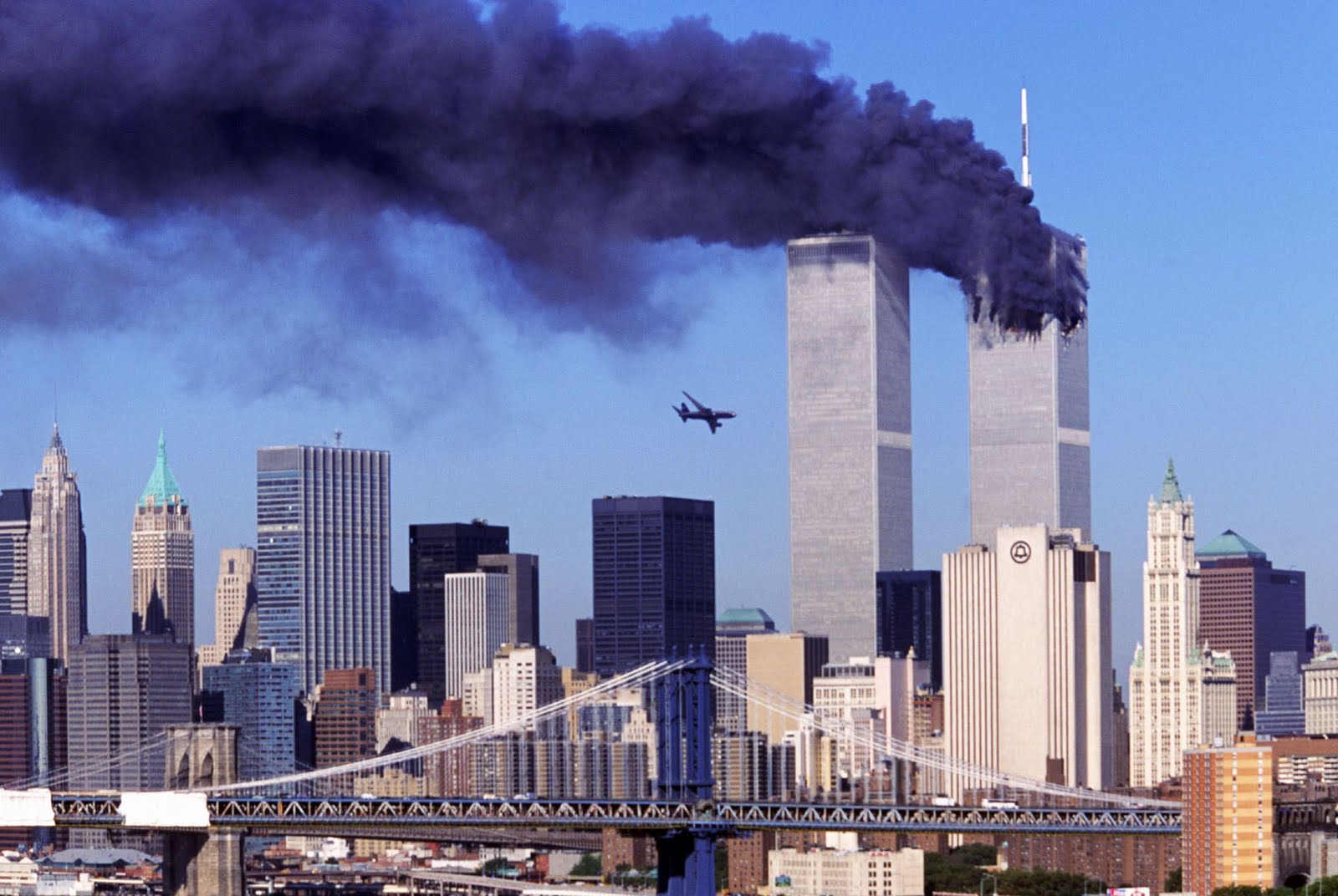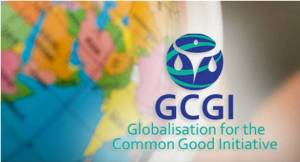A Call for Dialogue of Civilisations and the Common Good on 9/11
Kamran Mofid
Founder, Globalisation for the Common Good Initiative (GCGI)

9/11 Tuesday, September 11, 2001, New York. Photo: printerest.com
As we approach the 9th anniversary of 9-11, it is truly heart-breaking that nine years after that tragic day and the severe destruction from the consequent wars in both Iraq and Afghanistan, as well as the undeclared war in Pakistan and elsewhere, new global institutions and structures which fit the needs of the time to address the crises of inequality, injustice and the environment have yet to emerge, even though they are acutely and desperately needed.
Instead, extremists in both the Muslim and Christian worlds, as well as extremists from other religions and many nations, empower one another, preventing meaningful dialogue, understanding and mutual respect, marginalizing voices of reason, moderation, and peace, by fanning the flames of hatred, preying upon fear, while poisoning the political discourse.
It is time to rise from the ashes of destruction by embracing a new vision of hope for the world, a vision that encompasses social justice at the global level, an end to poverty, and a reverence for all the species of the earth. The perpetrators of 9/11 and the purveyors of war have reveled in the fear, the anger, and the mistrust between segments of the human family who belong to different religions, cultures, and civilisations, while those who benefit greatly from the global economic system as it is, use the fear, the mistrust, and the anger to block needed change.
Extremists and economic elites will never be defeated merely by condemning their rhetoric and their actions. Only hope can overcome fear, and only love can conquer hatred. We desperately need a vision of a global human community grounded in respect for the earth and other species, and compassion towards one another. We need to build new global institutions and structures capable of making that vision a reality. Until that happens, the human family will wallow in anger, fear, hate and destruction. We cannot afford such a fate any longer and let us together seek to build a better world. A world abundant in wisdom and grounded in humility.
To build this better world we need a newer vision than the one we currently have. A vision that positions the quest for economic and social justice, peace and ecological sustainability, ethical and corporate social responsibility within the framework of a spiritual consciousness grounded in generosity, sympathy, empathy and the common good. A vision that is inclusive, mindful of the environment and the human connection to nature. In short, a vision that goes beyond the clash of civilisations and instead embraces and embarks on the path of the dialogue of civilisations and the common good.
In these times characterized by the spread of hate, violence, terrorism, wars and xenophobia, the commitment to dialogue among civilizations is a welcome antidote to the looming clash of civilizations and to various forms of hegemonic domination and cultural standardization. The place of civilisations in the contemporary globalised world has become increasingly a matter of sociopolitical and economic debate in this era of globalization. Civilisations are, in fact, a major component of human development. Indeed, the history of humankind can be thought of as the unfolding of interactions and exchanges among civilisations.
The question of the scope and potential of dialogue among cultures and civilisations is achieving unprecedented significance, especially in the present international context. More than ever before, dialogue poses a fundamental challenge and must be based on the unity of humankind and commonly shared values, the recognition of the world’s cultural diversity and the equal dignity of each civilisation, culture and individual.
At the dawn of the third millennium, dialogue of civilisations is confronted by many challenges, particularly the challenge of dialogue between peoples from the Islamic, European, Asian and American civilisations, to name but a few. A further serious challenge is fear of the other, or more aptly the fear of Muslims or what is known today as Islamophobia. We need also to face up to the main cultural challenges of modern times in order to achieve positive results that would give humanity a chance to live in peace, safety, prosperity and harmony.
All peoples of the world, including Arab and Muslim people, must combine their efforts in order to face up to the tough challenges born out of globalisation. Muslims have to immediately close ranks with the West in a fruitful and efficient intellectual and cultural alliance. Through this alliance, they will be able to draw up reference criteria for dealing with one another, provide correct information about Islamic concepts, precepts and teachings that Muslims apply in their daily life not only as a matter of faith, but as the set of unwavering ethics adhered to by all Muslim communities wherever they maybe.
All in all, by bringing the Dialogue of Civilisations and Globalisation for the Common Good together, we can become a bridge of reconciliation, hope and harmony, bringing down the walls of hatred, fear, selfishness, greed, individualism, poverty, deprivation and hopelessness that separate us from dialogue and understanding. Good dialogue needs good globalisation and vice versa.
The better and newer world that we are all trying to build will be our lasting contribution to honor the memory of the victims of 9/11, as well as all other victims of post 9/11 wars and conflicts.
Kamran Mofid,
Founder, Globalisation for the Common Good Initiative (GCGI)
www.gcgi.info

